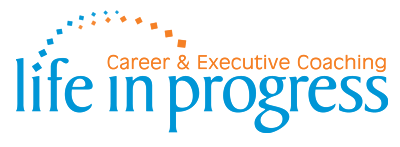
by Deanna Parkton
You may have found yourself being introduced to someone at a social gathering and being asked, “What do you do?”
This question is so commonly asked, it is ingrained in our culture. Our occupation can say a lot about us, and it helps new people have an understanding of who we are or what our values might be. Children are often asked, “What do you want to be when you grow up?” Based on their answer, we can make assumptions based on their interests, values or skills.
For those that feel that their life purpose is represented in their work, sharing their job can be an opportunity to share their passion. Their career choice is rooted in how they want to define themselves in some way. For others, a job might just be a financial means to an end or even a short-term solution or detour; seeing it as purely a job, not a career.
Defining ourselves by our jobs is not a new idea. Interestingly enough, many last names passed down for generations translate to a profession. For many generations, people did not get to choose their career, it was simply a generational choice based on what their father did for a living. As time went on and access to training and education flourished, people were able to make choices by deciding their career or educational path as they got closer to adulthood. This allowed people to define themselves more individually rather than by their family’s trade.
Our chosen career has become a way for us to differentiate ourselves from our family and find our own identities.
Developmentally, adolescents and young adults are striving for independence from their family. Choosing their own path is a right of passage, and an important part of becoming an adult. When making this choice, a person spends a lot of time and thought on this decision. They can then often spend years in training for this role and more years excelling or perfecting this role.
For this reason, many people begin to define themselves by their job (sometimes for better or worse). This concept is called workism. Workism is the idea that work is the centerpiece of one’s identity and purpose; and that giving everything to our work advances human welfare.
Defining ourselves by our job can be a positive: it is a way to find purpose and meaning in our lives. It pushes us to keep going and to get out of bed everyday with a goal. Like most things in life, defining ourselves only by our work requires a careful balance. We can be at risk of neglecting other key areas of our life including personal development, and even personal care. Working through lunch or working without a break is commonplace in American culture. If we only define ourselves and our self-worth by our work, we can be at risk by becoming burnt out or depressed based on how our work is going.
If we define ourselves by our career above all else, what does that mean for the rest of our life (our families, our hobbies, our friends)?
Our work can be a significant part of our identity, but finding a way to integrate other parts of our life into our self-identity can help us find balance.
If you are feeling unbalanced in how your work relates to your self-identity, find ways to reconnect with your purpose and how it pertains to your work. Take a moment to think about the following:
- Why did I choose this career or job?
- What do I get out of my work besides a paycheck?
- What keeps me fulfilled in my work?
Now think about your overall purpose and self-identity:
- What are other purposes I have in my life outside of work?
- What kinds of fulfillment do I find through my relationships?
- What kinds of fulfillment do I find through my hobbies or extracurricular activities?
- What makes me, me?
Taking some time to journal and reflect on this will help you find balance in your self-identity. This exercise will also help you to connect your work identity and purpose to your life identity and purpose.
Your purpose should relate to your work, but by remembering why you chose your career, you can remind yourself of who you are at your core. This puts your purpose and self-identity at the forefront, rather than your career.
Remember, you chose your career because of your purpose and values, your career doesn’t dictate your purpose. By reassessing and realigning your purpose, it can help you think about how your work integrates into your identity rather than vice versa.
For more ideas on how you can manage boundaries around your work, consider working with a career coach. A coach can help you identify strategies to face workplace challenges head on. Check out our executive coaching services and sign up for a free consultation here.
Deanna Parkton is a writer, career coach and educator with a passion for professional development and work wellness and happiness. With a focus on self-reflection, she works with individuals in their quest to reach their career goals as well as satisfaction in work-life balance. You can find more of her writing at workinglivingwell.com and she can be reached at workinglivingwell@gmail.com.
